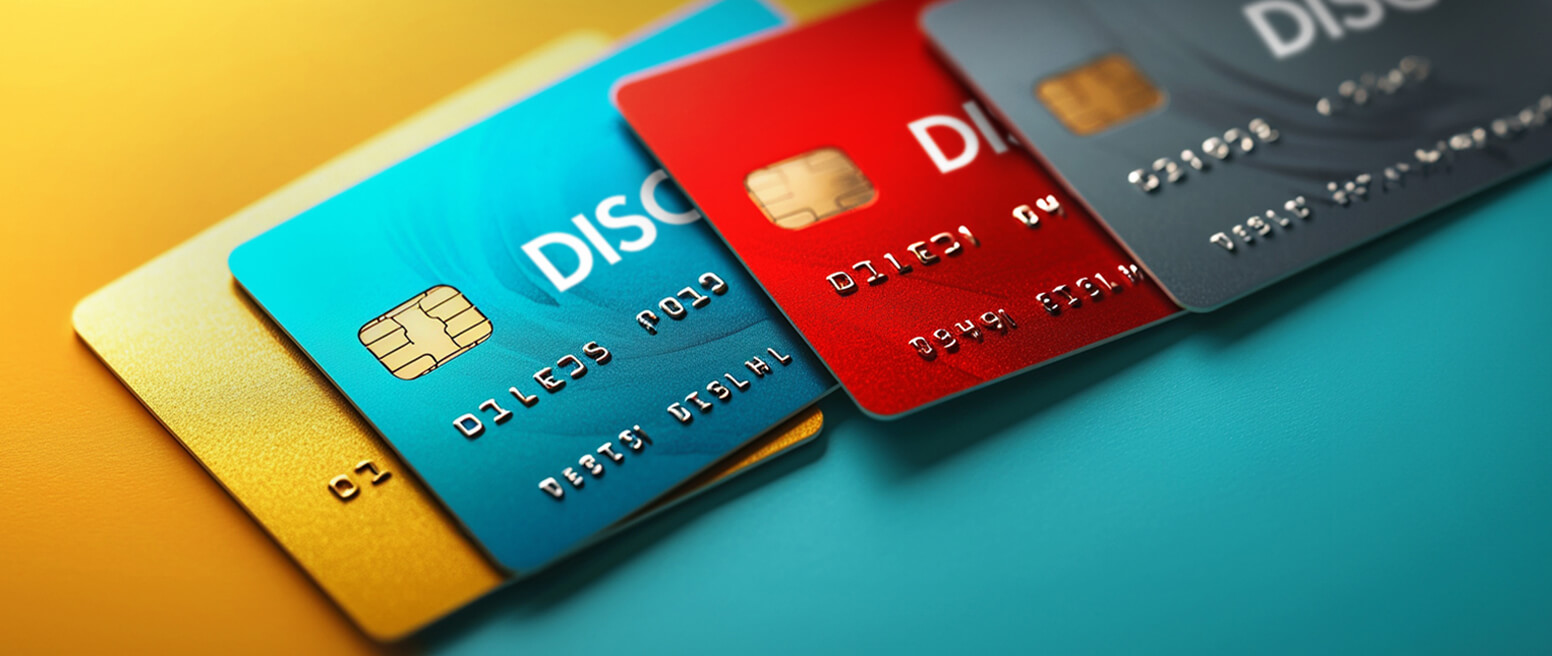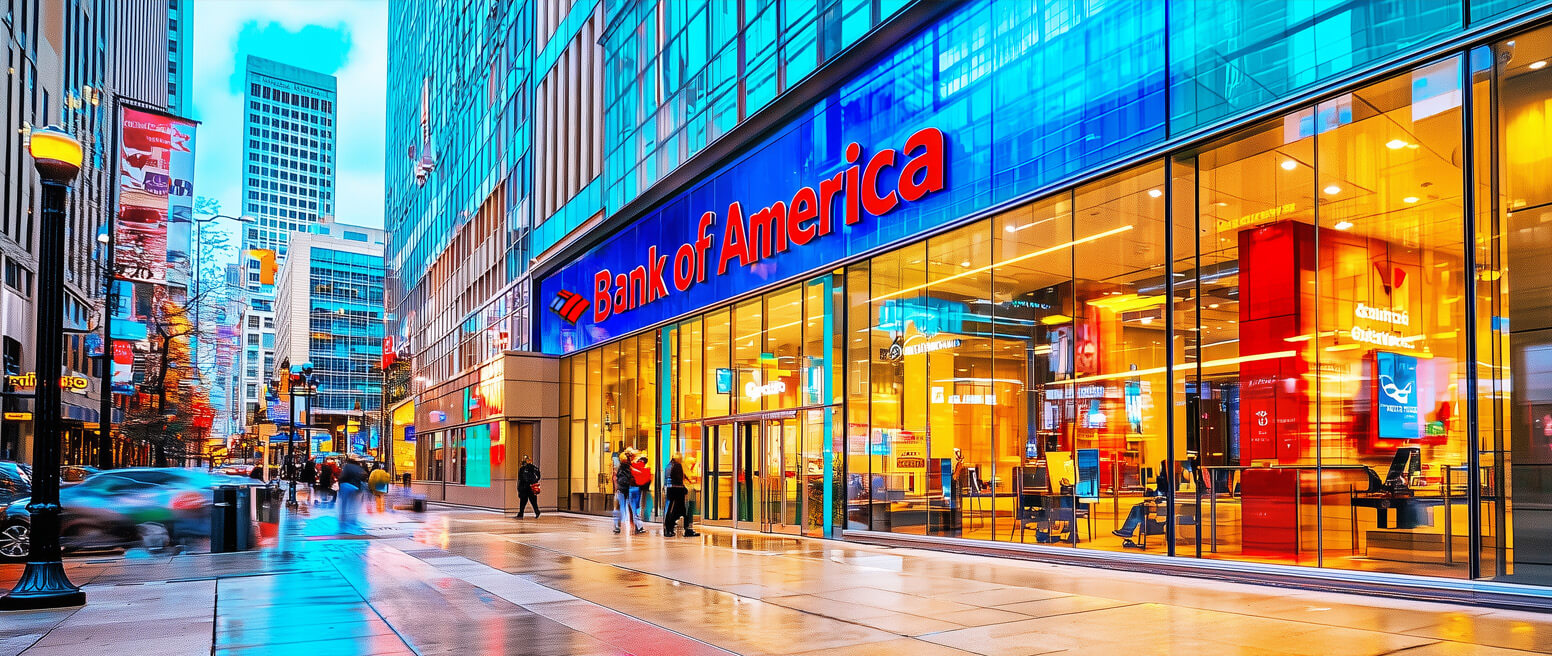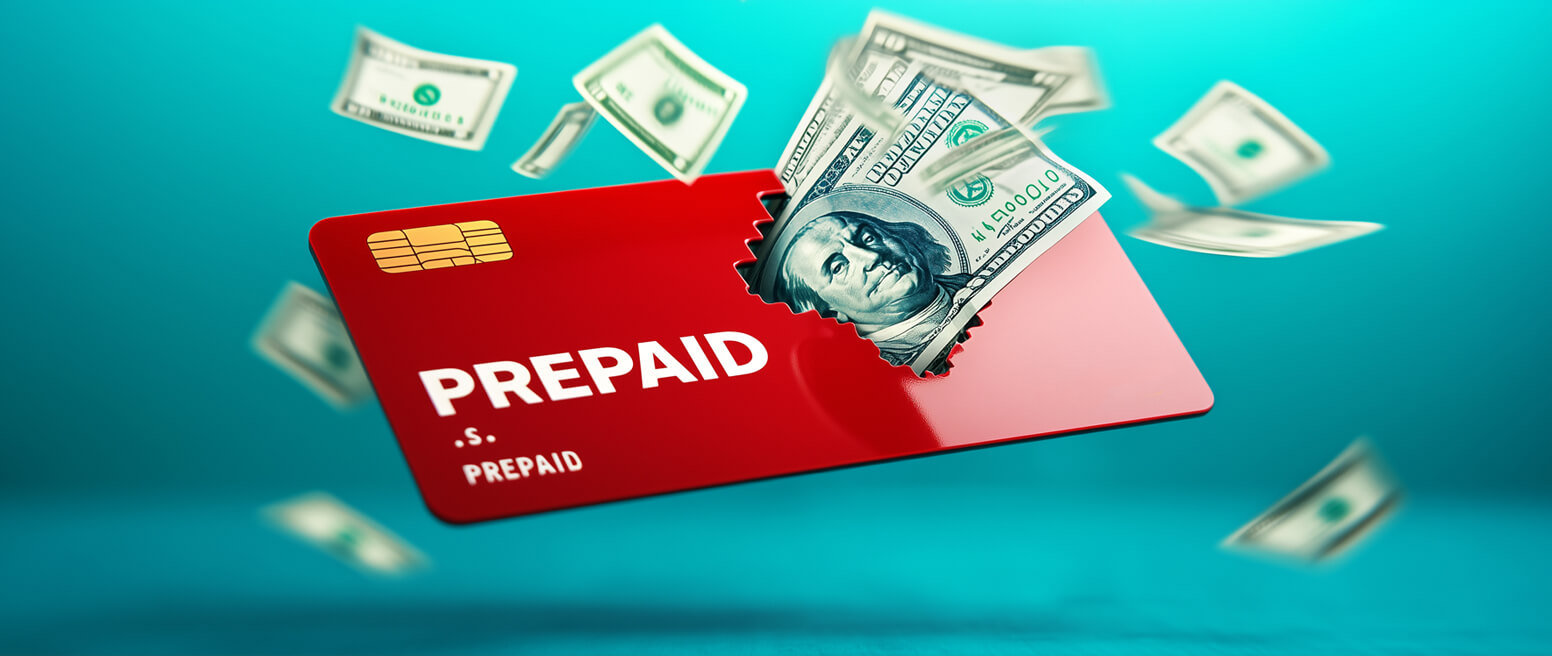What Makes Discover Card Chargebacks Different From Other Disputes?
Transactions using a Discover credit card are the same as a Visa or Mastercard transaction in many ways. However, there is a key difference between these card networks.
Unlike Visa and Mastercard, Discover functions as both an issuing bank and a card network. So, when it comes to Discover Card chargebacks, there’s a good chance the merchant will be dealing directly with Discover Bank. Due to the company’s business model, customer disputes and chargebacks on Discover payment cards can be extremely confusing.
For this post, we’re looking specifically at Discover card chargebacks: how cardholders can file them, how merchants can contest them, and how they differ from the larger card networks.
Recommended reading
- What is the Zelle Dispute Process? What Should Victims Do?
- Venmo Chargebacks: How Do Disputes Work on Venmo?
- Bank of America Disputes: Here's What You Need to Know
- What are Prepaid Card Chargebacks & How Do They Work?
- American Express Chargebacks: Rules & Time Limits & More
- Stripe Chargeback Guide: Time Limits & Other Info You Need
For the most part, transactions using a Discover card are identical to those made with a Visa or Mastercard. There is one major difference between these companies, though: unlike the larger card brands, Discover, functions as a bank that issues credit cards to consumers, and as a card network that handles the transactions between merchants and issuers. Most transactions processed via the Discover Network involve cards issued by Discover Bank.
When Can Cardholders Dispute Discover Transactions?
Discover lets cardholders dispute transactions within 120 days of the original purchase or estimated delivery date. This is allowed under specific circumstances including (but not limited to) fraud, missing goods, or counterfeit goods.
The network’s rules establish legitimate and illegitimate reasons for chargebacks. These guidelines are meant to discourage buyers from filing bogus chargebacks. They’re also meant to protect merchants against baseless disputes, and reduce administrative fees related to chargebacks and stop fraudulent claims.
In general, buyers have 120 days from the original purchase (or estimated delivery date) to file a Discover chargeback. They also need a valid reason; legitimate reasons for Discover disputes include (but are not limited to):
Learn more about valid reasons for chargebacksInvalid Reasons for Discover Chargebacks
Not all chargebacks are considered valid by Discover. There are a lot of situations in which a buyer might call the bank to request a chargeback, but they are not entitled to do so. Examples of these include:
Discover Card Chargeback Process
Discover has a predetermined process for handling chargebacks, just as other networks do.
When a card member contacts Discover to dispute a charge, the company reviews the transaction data it has already obtained to decide whether or not the dispute is valid. Card members typically have 120 days from the transaction date to dispute a transaction.
- Discover decides the customer’s claim is legitimate and issues a chargeback.
- Discover sends a Ticket Retrieval Request to gather more information about the case.
Since the company acts as both the issuer and card network, they already have an abundance of transaction information available for review. So, at that point, one of two things happen:
These retrieval requests are extremely important. They indicate that Discover needs more information to decide whether or not to issue a chargeback (more on this later).
If they don’t hear from the merchant, the claim will be escalated to a chargeback. The network will assess additional fees as a result.
There’s one more important difference between Discover and the other major card networks to know about. Visa and Mastercard require the merchant to attempt to resolve the matter directly with the cardholder. Discover, however, prohibits any contact between merchants and the card member regarding a Discover card chargeback.
How to Dispute a Charge on a Discover Card
Discover advises cardholders to contact merchants before disputing transactions. Merchants may offer refunds or product replacements if the dispute concerns billing errors, fulfillment mistakes, or defective goods; chargebacks should only be filed as a last resort.
Cardholders who are unable to secure a refund form the seller directly may dispute charges by calling Discover’s customer service line at (800) 347-2683. Cardholders can also take the following steps to file chargebacks online:
- Log into your Discover online banking account
- Select the “Activity and Statement’ page under the “Activity” icon
- Select the transaction you wish to dispute and click the “Dispute This Charge” icon
After filing a chargeback, you should provide evidence to back your claim by either faxing Discover at (224) 813-5109 or by uploading the documents online through the “Upload Documents” section available under the “Security” drop-down menu on the “Disputes” page.
Once the dispute is reported, Discover representatives will check purchase details and contact the merchant involved. If Discover looks at all the evidence and feels the claim is legitimate, the dispute is escalated to a chargeback. The cardholder will be issued a provisional credit for the amount of the disputed transaction. That said, the dispute may not be fully resolved for weeks, or even months.
In most situations, asking the merchant for a refund brings a faster and more equitable resolution to the dispute. That will typically end the matter, too, whereas with chargebacks, retailers will have an opportunity to challenge the claim.

What is a Discover Ticket Retrieval Request?
For certain types of claims, such as stolen cards, a chargeback will be filed immediately. In other situations, the issuer could have questions about the disputed transaction. If so, they may issue a ticket retrieval request, or TRR, to the merchant.
Ticket retrieval requests are Discover’s official way of asking for additional transaction details. The TRR gives merchants an opportunity to remedy the dispute without going through the official chargeback process.
If you receive a ticket retrieval request from Discover, you have five calendar days (not five business days) to respond. If you have the information necessary to counter the claim, you should submit it as quickly as possible, or the claim will be escalated to a chargeback.
If a merchant, or their acquirer, has information that can counter the card member’s claim, this is their chance to submit it. In some cases, that additional data will be enough to resolve the dispute. TRRs could have a fee attached, but they’re still less expensive than going the chargeback route.
If the merchant ignores the TRR, or does not submit convincing evidence, the customer dispute will be escalated to a chargeback. The merchant account in question will be debited and the transaction amount will be refunded to the card member.
| Ticket Retrieval Request Reason Code | Reason | Explanation | How to Respond |
| 01 | Transaction Documentation Request | Either the cardholder or issuing bank needs information for an unspecified reason. | Provide proof of successful product delivery or that the disputed transaction was authorized by the cardholder. Demonstrate that the transaction did not violate any of the operating rules published by Discover. |
| 03 | Transaction Documentation Request Due to Cardholder Dispute | The issuer needs more information because the cardholder: - Has not received a refund that they are eligible for - Does not recognize a transaction - Was charged for a canceled subscription - Is dissatisfied with the goods or services received - Was double charged or charged a wrong amount | Provide proof of product delivery. Show proof that the cardholder authorized the charge. Provide evidence that the transaction was refunded. Demonstrate that the disputed transaction adheres to the Discover operating rules. |
| 04 | Transaction Documentation Request for Fraud Analysis | The issuer needs information to examine charges that have been flagged for fraud | Provide proof that the disputed transaction meets Discover rules. Provide shipping and delivery records, refund transaction details and customer authorization for the transaction. |
| 05 | Good Faith Investigation | The cardholder or issuer needs information about a transaction even though the time window for a chargeback has lapsed. | The merchant is at will to provide any information s/he desires. |
Discover Card Dispute Time Limits
As mentioned above, Discover cardholders typically have 120 days in which to dispute a transaction. Also, if a ticket retrieval request is issued, the merchant must submit the requested data within five calendar days.
All Discover dispute time limits are measured in calendar days, NOT business days. That means weekends and holidays are counted as part of the time allotment.
If the TRR response doesn’t solve the problem and a chargeback is filed, the Discover chargeback time limit allows up to 30 days for the seller to present evidence to contest the claim. Keep in mind, however, that using a processor other than Discover may require merchants to submit documents sooner than the official limit.
If a dispute requires arbitration, merchants will have just 30 calendar days to submit additional documents. Once Discover receives documentation from both parties, it will rule on the arbitration within 15 business days. If the case is ruled in favor of the cardholder, the merchant has 30 in which to comply with Discover’s decision.
Learn more about chargeback time limitsDiscover Card Chargeback Reason Codes
Every chargeback is filed with an accompanying reason code. This is a type of shorthand to explain why the chargeback occurred. The issuing bank labels the dispute using the codes of the associated card network (in this case, Discover). While the company may be considerably smaller, Discover’s list of chargeback reason codes is just as extensive as those of Visa or Mastercard.
Most card networks use numeric codes, but Discover codes are alphabet-based. For example, the dispute reason “Cardholder Does Not Recognize” is denoted by the Discover reason codes system as “AA.”
Different reason codes are also linked to differing types of compelling evidence. To win a Discover card representment, a case will need to be built around the specific documentation requested for that particular code. In other words, a merchant needs to be extra-attentive to Discover chargeback reason codes if they hope to win a reversal.
Learn more about Discover reason codesDiscover Dispute Tools for Merchants
Chargebacks were created to protect consumers. So, it’s not surprising that the system can sometimes seem skewed to the cardholder’s benefit. Discover also offers tools to help merchants manage and prevent chargebacks, though.
The Discover Network Dispute System (DNDS) is designed to aid in dispute resolution. Through it, authorized users can look up transaction and cardholder details and find other data for each claim. The platform also allows merchants to upload evidence to fight a Discover chargeback.
Other Discover Fraud Tools Include:
Discover ProtectBuy
Discover ProtectBuy is the Discover-branded version of 3-D Secure customer authentication. This solution uses technology to verify card member identity at the time of purchase. If a transaction is flagged as high risk, the card member must enter a single-use verification password sent by the system in real time.
Discover Verify+
Discover Verify+ identifies high-risk transactions prior to fulfillment, allowing US retailers to verify card member data at the point of transaction. Transaction information is compared to the most current data Discover has on file, providing additional fraud protection while helping minimize shopping cart abandonment.Discover Enhanced Decisioning
Discover Enhanced Decisioning is a no-cost fraud management solution that allows one to provide additional card member data to issuers for better decisioning. Delivered in real time, this information can help the issuer decide whether to approve or decline a sale, helping maintain a frictionless checkout and reducing fraudulent transactions.Fraud Alerts Standard
Fraud Alerts Standard is a free, web-based platform that can give US businesses early warning of fraudulent transactions. Immediate notification of fraudulent activity allows the merchant to quickly access transaction details to cancel outstanding transactions, subscriptions, or current orders. A premium version of the platform is also available.Discover Card Chargebacks & Representment
For merchants, the odds of getting a Discover chargeback overturned are limited. It can happen under the right circumstances, though.
For example, if the merchant can show that a refund was issued before the dispute, Discover may consider the case resolved. In most situations, however, that type of information would have been submitted in response to the Ticket Retrieval, before the chargeback was filed.
Still, the merchant or acquirer may have reason to believe the claim should not have become a chargeback. Discover chargeback rules allow them to try and have the decision reversed through representment.
Representment will require additional evidence that has not yet been provided to the issuing bank. The specifics for that evidence can vary depending on both the cardholder’s claim and the issuer. Notification of a dispute will typically include a list of documents that will be required for successful representment.
Learn more about representmentThe Importance of Discover Chargeback Prevention
While it may be possible to win a reversal on a Discover chargeback, the best strategy is still to prevent them from happening in the first place.
One of the most important parts of chargeback prevention is clear communication with the customer. For example, merchants should:
- Ensure customer service contact information is prominent and easy to access from multiple locations.
- Share their return or exchange policy and any other terms of service before completing the checkout process.
- Always ask for the CVV card security code on the back of the Discover card during checkout.
- Use the Verify+ and Automated Address Verification (Discover’s version of AVS) services to validate card member information.
- Process any credits immediately and let card members know when they will receive the refund.
Implementing these practices may help prevent some Discover card chargebacks. That said, merchants ultimately need a comprehensive chargeback management strategy that addresses the issue from all angles.
Chargebacks911® has a wealth of experience-based knowledge and expertise in providing cost-effective prevention and risk mitigation strategies. Our experts can help you discover the true sources of all your chargebacks, and create a management plan to retain revenue and prevent future disputes. Contact us today to learn more.
FAQs
Does Discover allow chargebacks?
Yes. The chargeback system is a federally mandated consumer protection mechanism that is required of all US card networks.
What happens if you dispute a charge on Discover?
Discover will start investigating the disputed charge as soon as it is submitted. By law, the company has 90 days to resolve a dispute. On average, though, claims are usually resolved in 30-60 days. After the case is resolved, the cardholder will typically receive written notification of the outcome.
How much is the Discover chargeback fee?
The Discover chargeback fee may vary anywhere from $25 to $75, depending on the situation.
How long does it take for Discover to resolve disputes?
This varies from one situation to the next. If the Discover card chargeback is a straightforward claim, then it may take just a few days for the money to be returned to the cardholder. If the merchant opts to dispute the claim, though, it could take several weeks, or even months.
Are Discover chargebacks different from Visa and Mastercard chargebacks?
Yes. Because the issuer in this case has the bulk of the transaction information already, Discover disputes are typically more straightforward. For the same reason, however, it can be hard to successfully contest a Discover card chargeback.
What is a ticket retrieval request?
Ticket retrieval requests are how Discover formally asks the merchant for more information prior to ruling whether a card member has cause to file a chargeback.














